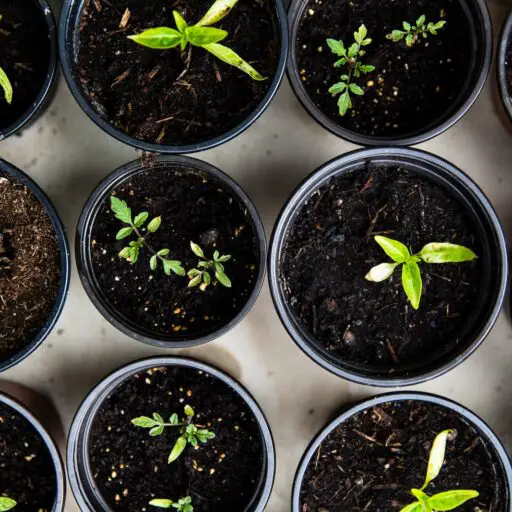Support our educational content for free when you purchase through links on our site. Learn more

Have you ever strolled through a community garden and felt an inexplicable sense of joy and connection? You’re not alone! Gardens have a magical way of bringing people together, fostering friendships, and creating vibrant communities. In our exploration of the 15 social benefits of gardens, we’ll uncover how these green spaces do more than just grow vegetables – they cultivate relationships, promote mental well-being, and even boost local economies!
Did you know that urban gardening can reduce food insecurity by up to 30% in some neighborhoods? Imagine a world where everyone has access to fresh produce, and communities thrive together. In this article, we’ll dig deep into the myriad ways gardens enrich our lives, from sparking meaningful connections to promoting sustainability. So, grab your gardening gloves and get ready to sow the seeds of community engagement!
Key Takeaways
- Community Engagement: Gardens create spaces for social interaction, reducing feelings of isolation and fostering friendships.
- Mental Health Benefits: Gardening acts as a natural stress reliever, improving overall well-being and mood.
- Educational Opportunities: Gardens serve as living classrooms, teaching valuable lessons about ecology, nutrition, and sustainability.
- Cultural Exchange: They promote diversity and inclusivity, allowing individuals from various backgrounds to share traditions and experiences.
- Economic Impact: Community gardens can boost local economies by providing fresh produce and creating job opportunities in urban farming.
Ready to start your gardening journey? Check out our recommended resources for Gardening for Beginners and explore the best Garden Design Ideas to create your own green oasis! 🌻
Table of Contents
- Quick Tips and Facts About the Social Benefits of Gardens
- The Roots of Gardening: A Historical Perspective on Social Connection
- How Gardens Foster Community Engagement and Interaction
- The Role of Gardens in Promoting Mental Health and Well-Being
- Gardens as Educational Spaces: Learning Through Nature
- The Economic Impact of Community Gardens: Growing Together
- Diversity and Inclusion: How Gardens Bring People Together
- Creating a Sense of Place: The Importance of Green Spaces
- Gardening and Sustainability: Building a Better Community
- The Value of Community Gardens: Social Impact and Benefits
- Subscribe For More Great Content on Gardening and Community
- Conclusion
- Recommended Links for Further Exploration
- FAQ: Your Gardening Questions Answered
- Reference Links for Credible Information
Quick Tips and Facts About the Social Benefits of Gardens 🌸
Want to know the magic formula for a thriving community? Here’s a hint: it involves dirt, seeds, and a whole lot of green! Community gardens offer a bounty of social benefits, fostering connections that bloom as vibrantly as the plants themselves.
Did You Know? Studies show that community gardening can:
- Reduce social isolation: Loneliness can wilt the spirit, but community gardens offer fertile ground for connection. National Center for Biotechnology Information
- Boost community pride: When residents work together to create something beautiful and productive, it cultivates a shared sense of accomplishment and ownership.
- Promote healthier lifestyles: Fresh air, exercise, and the bounty of homegrown produce – what’s not to love?
Quick Tips for Building Community in Your Garden:
- Organize potlucks and picnics: Sharing a meal amidst the fruits (and vegetables!) of your labor is a recipe for laughter and bonding.
- Create a community bulletin board: Post upcoming events, share gardening tips, or simply leave encouraging messages for fellow gardeners.
- Host workshops and skill-sharing sessions: From composting to seed starting, there’s always something new to learn from one another.
Remember, the true beauty of community gardens lies not just in the harvest, but in the connections we cultivate along the way. 🌱
The Roots of Gardening: A Historical Perspective on Social Connection
Gardening’s roots run deep in human history, entwined with our social fabric since ancient times. From the communal fields of Mesopotamia to the monastic gardens of medieval Europe, cultivating the land has always been about more than just sustenance – it’s about nurturing community.
Ancient Practices, Enduring Connections
Think back to the ancient Egyptians, who relied on the Nile’s floods to nourish their communal fields. This shared dependence on the land fostered cooperation, innovation, and a strong sense of community. Similarly, the Aztec chinampas, floating gardens built on lakes, required collaborative efforts, bringing people together to create and sustain their food source.
Victory Gardens: Sowing Seeds of Unity
Fast forward to the 20th century, and we see the power of gardening to unite communities during times of hardship. Victory gardens, springing up during World War I and II, transformed backyards and public spaces into thriving food sources. More than just a practical response to food shortages, these gardens fostered a sense of shared purpose, resilience, and community spirit.
Modern Community Gardens: Cultivating Connections in Concrete Jungles
Today, community gardens continue to blossom in urban and suburban landscapes alike, offering a vibrant testament to the enduring social benefits of gardening. They provide a refuge from the hustle and bustle of modern life, offering a space for connection, collaboration, and a renewed appreciation for the natural world. As we’ve explored in our article on community garden benefits to the global community, these green spaces have the power to bridge cultural divides, promote sustainability, and empower individuals through shared knowledge and experiences.
From ancient practices to modern movements, the history of gardening reveals a profound truth: when we cultivate the land together, we cultivate community. 🌻
How Gardens Foster Community Engagement and Interaction
Have you ever noticed how a community garden can transform a vacant lot from a forgotten space into a lively hub of activity? It’s like magic, but with more trowels and tomatoes! 🍅 Let’s dig into how gardens naturally cultivate community engagement and interaction:
1. Shared Spaces, Shared Experiences
Community gardens are, by their very nature, shared spaces. Unlike individual backyard gardens, they bring people together around a common purpose – to grow food, beautify their neighborhood, and connect with nature. This shared endeavor creates a foundation for interaction and a sense of belonging.
2. Breaking the Ice, One Seedling at a Time 🌱
Let’s face it, striking up conversations with strangers isn’t always easy. But in a garden setting, surrounded by the fruits (and vegetables!) of everyone’s labor, conversations flow more naturally. Exchanging gardening tips, sharing stories about pesky squirrels, or simply admiring a neighbor’s prize-winning zucchini can spark unexpected friendships.
3. From Seed to Supper: Events that Bring People Together
Community gardens often become vibrant hubs for social events that bring residents together. Think potlucks featuring garden-fresh dishes, workshops on composting or seed starting, or even lively plant swaps where gardeners can exchange their prized seedlings. These events create opportunities for learning, laughter, and lasting connections.
4. Building Bridges Across Generations 👨👩👧👦
Gardening is an activity that transcends age barriers. It’s not uncommon to see seasoned gardeners sharing their wisdom with eager youngsters, passing down knowledge and love for the land to the next generation. This intergenerational exchange strengthens community bonds and creates a sense of continuity.
5. A Sense of Ownership, A Spirit of Collaboration
When people invest their time and energy in a community garden, they develop a sense of ownership and pride in their neighborhood. This shared responsibility fosters a spirit of collaboration, encouraging residents to work together to address challenges and celebrate successes.
Want to learn more about creating a thriving community garden? Check out our resources on Benefits of Community Gardens and Community Garden Events.
The Role of Gardens in Promoting Mental Health and Well-Being
We all know that feeling: stepping into a garden, breathing in the fresh air, and feeling the stress melt away. But did you know that gardening offers more than just a temporary mood boost? It’s like a vitamin for your mind, nurturing mental health and well-being in profound ways. 🧠🌸
1. Stress Buster Extraordinaire: Taming the Anxious Mind
In today’s fast-paced world, our minds are often racing with to-do lists and worries. Gardening provides a therapeutic escape, allowing us to shift our focus to the present moment. The rhythmic motions of digging, planting, and watering can be incredibly meditative, calming the mind and easing anxiety.
2. Nature’s Antidepressant: Boosting Mood Naturally
Studies have shown that spending time in nature can increase levels of serotonin and dopamine – those feel-good chemicals in our brains. Harvard Health Publishing And what better way to connect with nature than by getting your hands dirty in a garden?
3. A Sense of Accomplishment: Sowing Seeds of Self-Esteem
There’s something incredibly rewarding about nurturing a tiny seed into a flourishing plant. Each sprout, each blossom, and each harvest is a testament to your care and dedication. This sense of accomplishment, however small, can boost self-esteem and foster a sense of purpose.
4. Mindful Movement: Exercise for Body and Soul
Gardening is a fantastic way to incorporate gentle exercise into your routine without even realizing you’re working out! From digging and weeding to raking and harvesting, these activities engage various muscle groups, improving strength, flexibility, and cardiovascular health.
5. Connecting with Community: Combating Loneliness
As we’ve explored, community gardens are vibrant social spaces that combat loneliness and foster a sense of belonging. Sharing gardening tips, swapping stories, and working together towards a common goal can nurture meaningful connections and boost overall well-being.
Ready to experience the therapeutic benefits of gardening? Explore our Gardening for Beginners resources to get started!
Gardens as Educational Spaces: Learning Through Nature
Forget stuffy classrooms – some of the most engaging learning happens outdoors, amidst the sights, sounds, and smells of a garden! From tiny seeds to towering sunflowers, gardens are teeming with opportunities for hands-on learning and discovery. 🌻📚
1. Science in Action: From Seed to Harvest
Gardens are like living laboratories where kids (and adults!) can witness the wonders of science firsthand. They learn about plant life cycles, the importance of pollinators, the magic of composting, and the delicate balance of ecosystems.
2. Math in the Garden: Measuring, Estimating, and Problem-Solving
Gardening involves a surprising amount of math! From measuring planting depths and spacing to calculating fertilizer ratios and estimating yields, kids can develop their math skills in a fun and engaging way.
3. Sensory Exploration: Engaging All the Senses
Gardens are a feast for the senses! The feel of cool soil, the scent of blooming flowers, the taste of sun-ripened tomatoes – these sensory experiences create lasting memories and foster a deeper appreciation for the natural world.
4. Cultivating Curiosity: Asking Questions, Seeking Answers
The best learning often stems from curiosity. Gardens spark endless questions: Why do some plants need more sun than others? How do worms help our garden grow? By encouraging kids to ask questions and seek answers, we nurture their natural curiosity and love for learning.
5. Food Literacy: From Garden to Table
In a world of processed foods, gardens provide a vital connection to where our food comes from. Kids who participate in gardening are more likely to try new fruits and vegetables, develop healthy eating habits, and appreciate the value of fresh, homegrown produce.
Looking for creative Garden Design Ideas to inspire young learners? We’ve got you covered!
The Economic Impact of Community Gardens: Growing Together
Community gardens are often celebrated for their social and environmental benefits, but did you know they can also sow seeds of economic opportunity? From reducing grocery bills to sparking local businesses, these green spaces can blossom into economic engines for communities. 💰🌱
1. Stretching Food Budgets: Homegrown Abundance
For families facing food insecurity, community gardens can be a lifeline, providing access to fresh, nutritious produce. By growing their own food, residents can supplement their grocery budgets and allocate those savings to other essential needs.
2. Skill-Building and Entrepreneurship: Cultivating Green Careers
Community gardens can be incredible incubators for green job skills and entrepreneurship. Participants gain experience in urban farming, permaculture, composting, and other sustainable practices – skills that are increasingly in demand in today’s job market. Some gardeners even turn their passion into profit by selling their surplus produce at farmers’ markets or starting their own gardening-related businesses.
3. Boosting Property Values: Greening Up the Neighborhood
A well-maintained community garden can enhance the aesthetic appeal of a neighborhood, attracting new residents and businesses. Studies have shown that properties located near green spaces, such as community gardens, tend to have higher property values.
4. Reducing Healthcare Costs: Investing in Preventative Health
Access to fresh, healthy food is essential for preventing chronic diseases such as obesity, diabetes, and heart disease. By promoting healthy eating habits and providing opportunities for physical activity, community gardens can contribute to a healthier population and potentially reduce healthcare costs in the long run.
5. Fostering Community Cohesion: Attracting Investment
Thriving community gardens can be a sign of a strong and engaged community, making the neighborhood more attractive to potential investors and businesses. This influx of investment can lead to job creation, improved infrastructure, and overall economic revitalization.
Want to learn more about establishing Community Garden Policies that support economic empowerment? We’re here to help!
Diversity and Inclusion: How Gardens Bring People Together
Community gardens are like beautiful mosaics, reflecting the diversity of the people who tend them. They provide a welcoming space where individuals from all walks of life can come together, share their love for gardening, and build bridges across cultural divides. 🌎🤝
1. A Common Ground: Celebrating Our Shared Humanity
In a world often divided by differences, gardens offer a refreshing reminder of our shared humanity. Regardless of our backgrounds, languages, or beliefs, we all share a fundamental connection to the earth and the joy of nurturing life.
2. Cultural Exchange: Sharing Traditions and Flavors
Community gardens often become vibrant melting pots of culinary traditions. Gardeners from diverse backgrounds bring their unique knowledge of plants, growing techniques, and recipes, creating opportunities for cultural exchange and culinary adventures. Imagine tasting a neighbor’s homegrown heirloom tomatoes from Italy or learning about the medicinal properties of herbs used in traditional Chinese medicine.
3. Breaking Down Barriers: Fostering Understanding and Empathy
Working side-by-side in a garden can break down stereotypes and foster understanding between people of different backgrounds. As we share gardening tips, swap stories, and celebrate each other’s successes, we cultivate empathy and build relationships based on mutual respect.
4. Language of Growth: Connecting Through a Shared Passion
Even when language barriers exist, the universal language of gardening shines through. A smile, a gesture, or a shared moment of admiration for a blooming flower can transcend words, fostering connection and a sense of belonging.
5. Accessible to All: Creating Inclusive Spaces
Community gardens strive to be welcoming and accessible to everyone, regardless of age, ability, or socioeconomic status. Many gardens offer raised beds for easier access, adaptive tools for individuals with disabilities, and sliding-scale fees to ensure affordability.
Creating a Sense of Place: The Importance of Green Spaces
Have you ever noticed how a community garden can transform a nondescript corner into a beloved neighborhood landmark? It’s more than just aesthetics – green spaces like these play a vital role in creating a sense of place, fostering community pride and connection to the environment. 🌳❤️
1. From Concrete Jungle to Urban Oasis: Softening the Cityscape
In bustling urban environments, green spaces provide a welcome respite from the concrete jungle. They soften the harsh edges of the city, creating pockets of peace and tranquility where residents can reconnect with nature and escape the stresses of urban life.
2. Landmarks of Life: Creating Shared Memories
Community gardens often become cherished gathering places for residents, hosting everything from potlucks and movie nights to workshops and festivals. These shared experiences create lasting memories and foster a sense of community identity.
3. Pride in Place: Beautifying Our Neighborhoods
When residents invest their time and energy in beautifying their community, it fosters a sense of pride and ownership. A well-maintained community garden sends a powerful message: “We care about our neighborhood, and we’re invested in making it a beautiful and welcoming place for all.”
4. Connecting with Nature: Nurturing Environmental Stewardship
In an increasingly urbanized world, it’s easy to feel disconnected from nature. Community gardens provide a vital link to the natural world, reminding us of the importance of environmental stewardship and inspiring us to protect our planet.
5. Fostering Social Cohesion: Strengthening Community Bonds
Green spaces like community gardens act as magnets for social interaction. They provide a neutral ground where people from all walks of life can come together, share their love for gardening, and build relationships based on common interests.
Gardening and Sustainability: Building a Better Community
Community gardens are more than just patches of green – they’re budding examples of sustainable living in action! By embracing eco-friendly practices, these gardens nourish not only our bodies but also our planet. 🌎💚
1. Reducing Food Miles: From Garden to Table, Locally Sourced
The average meal travels over 1,200 miles to reach our plates, generating significant carbon emissions along the way. Community gardens help reduce our reliance on industrial agriculture by providing locally sourced, seasonal produce. Shorter distances mean fresher food, reduced transportation costs, and a lighter environmental footprint.
2. Composting: Turning Waste into Garden Gold
Food waste is a major contributor to landfills, where it decomposes and releases methane, a potent greenhouse gas. Community gardens often incorporate composting systems, turning kitchen scraps and yard waste into nutrient-rich fertilizer for their plants. This simple practice reduces waste, conserves resources, and closes the loop on food production.
3. Water Conservation: Nurturing Plants and Protecting Our Supply
As water scarcity becomes an increasingly pressing issue, community gardens offer valuable lessons in water conservation. From rainwater harvesting systems to drought-tolerant planting schemes, these gardens demonstrate practical ways to conserve this precious resource.
4. Protecting Pollinators: Creating Havens for Beneficial Insects
Pollinators, such as bees, butterflies, and hummingbirds, are essential for our food supply, yet their populations are declining at alarming rates. Community gardens can provide vital habitat for these beneficial creatures, offering a haven of flowering plants, nesting sites, and a pesticide-free environment.
5. Educating for a Sustainable Future: Inspiring the Next Generation
Community gardens serve as living classrooms, educating residents of all ages about sustainable living practices. By witnessing firsthand the benefits of composting, water conservation, and organic gardening, participants gain the knowledge and inspiration to make eco-friendly choices in their own lives.
The Value of Community Gardens: Social Impact and Benefits
Let’s face it, community gardens are more than just pretty patches of green – they’re vibrant hubs of social change, sprouting benefits that extend far beyond the garden gate. Let’s delve into the profound social impact these green spaces have on our communities. 🏘️❤️
1. Combating Social Isolation: Cultivating Connections, One Seedling at a Time
In today’s increasingly disconnected world, loneliness and social isolation are growing concerns. Community gardens offer a welcoming antidote, providing a space for people from all walks of life to connect, share their love for gardening, and build meaningful relationships. As one gardener shared, “I used to feel so isolated, but since joining the community garden, I’ve met so many wonderful people. It’s like having a second family.”
2. Empowering Communities: Sowing Seeds of Resilience and Self-Reliance
Community gardens can be powerful catalysts for community empowerment, particularly in underserved neighborhoods. By providing access to fresh, healthy food, these gardens address food insecurity and promote healthier lifestyles. Moreover, they foster a sense of self-reliance, teaching valuable gardening skills and empowering residents to take control of their food production.
3. Bridging Cultural Divides: Celebrating Diversity, One Harvest at a Time
Community gardens often reflect the rich tapestry of cultures within a neighborhood, becoming vibrant melting pots of traditions, languages, and culinary delights. As gardeners from diverse backgrounds share their knowledge and love for gardening, they break down stereotypes, foster understanding, and build bridges across cultural divides.
4. Reducing Crime and Promoting Safety: Transforming Vacant Lots into Vibrant Spaces
Neglected vacant lots can attract crime and create an atmosphere of fear in a neighborhood. Transforming these spaces into thriving community gardens not only beautifies the area but also deters criminal activity by increasing natural surveillance and fostering a sense of community ownership.
5. Improving Mental and Physical Well-being: Nurturing Minds and Bodies in Nature’s Embrace
As we’ve explored, gardening offers a wealth of mental and physical health benefits. The act of gardening itself can reduce stress, improve mood, and provide gentle exercise. Moreover, access to fresh, homegrown produce promotes healthier eating habits and reduces the risk of chronic diseases.
Subscribe For More Great Content on Gardening and Community
Don’t let the conversation end here! Subscribe to our newsletter for a regular dose of gardening inspiration, community-building tips, and exclusive content delivered straight to your inbox. Let’s keep growing together! 🌻✉️
Conclusion

In conclusion, the social benefits of gardens are as rich and varied as the plants that thrive within them. From fostering community engagement and breaking down cultural barriers to promoting mental health and enhancing local economies, community gardens serve as dynamic centers of social activity. They are not just patches of green; they are vibrant ecosystems of connection, collaboration, and growth.
If you’ve been pondering whether to get involved in community gardening, we wholeheartedly recommend diving in! The benefits are immense, not only for your personal well-being but also for the broader community. So grab your gardening gloves and join the movement – together, we can cultivate a greener, more connected world! 🌍🌱
Recommended Links
Ready to dig deeper? Here are some great resources to help you on your gardening journey:
- The Garden Primer by Barbara Damrosch: A comprehensive guide for gardeners of all levels.
- All New Square Foot Gardening by Mel Bartholomew: A unique approach to maximize your gardening space.
- Community Gardening: A Guide to Getting Started: Everything you need to know to kickstart your community gardening journey.
FAQ: Your Gardening Questions Answered

What are the social benefits of community gardening?
Community gardening cultivates a sense of belonging and connection among participants. It promotes social interaction, reduces feelings of isolation, and fosters friendships through shared experiences. Additionally, these gardens often serve as safe spaces for marginalized groups, enabling them to connect with the larger community. By creating opportunities for collaboration, community gardens help strengthen social networks and build resilience.
How do gardens benefit people?
Gardens benefit people in numerous ways, including:
- Mental health improvement: Gardening reduces stress and anxiety, providing a therapeutic escape from daily pressures.
- Physical health benefits: Engaging in gardening activities promotes physical fitness and encourages healthy eating habits through access to fresh produce.
- Educational opportunities: Gardens serve as hands-on learning environments, teaching individuals about ecology, biology, and sustainability.
- Community engagement: They foster connections among neighbors, creating a sense of belonging and community pride.
Read more about “How do gardens benefit people? “
What are the social benefits of a well-managed community food garden?
A well-managed community food garden can:
- Enhance food security: By providing access to fresh produce, these gardens help alleviate food insecurity in underserved neighborhoods.
- Promote cultural exchange: They bring together individuals from diverse backgrounds, encouraging the sharing of culinary traditions and gardening knowledge.
- Encourage collaboration: A well-organized garden fosters teamwork and cooperation among participants, building strong community ties.
- Improve neighborhood aesthetics: A well-maintained garden beautifies the area, increasing property values and attracting investment.
Read more about “Discover 15 Surprising Social Issues Impacted by Community Gardens … 🌱”
What are the spiritual benefits of gardening?
Gardening offers several spiritual benefits, including:
- Mindfulness: Spending time in nature encourages mindfulness and presence, allowing individuals to connect with their inner selves.
- Sense of purpose: Nurturing plants and witnessing their growth can instill a sense of accomplishment and purpose.
- Connection to nature: Gardening fosters a deeper appreciation for the natural world, promoting a sense of harmony and balance.
- Reflection and meditation: The act of gardening can serve as a form of meditation, providing a peaceful environment for reflection and self-discovery.
Read more about “Discover 15 Surprising Mental Health Benefits of Community Gardens 🌱 …”
How can community gardens promote sustainability?
Community gardens promote sustainability by:
- Encouraging local food production: They reduce food miles and carbon emissions associated with transporting food.
- Implementing eco-friendly practices: Many gardens adopt composting, rainwater harvesting, and organic gardening methods, minimizing their environmental impact.
- Promoting biodiversity: Community gardens create habitats for pollinators and beneficial insects, supporting local ecosystems.
- Educating the community: They serve as platforms for teaching sustainable practices, empowering individuals to make eco-friendly choices in their own lives.
Read more about “Are Community Gardens Successful? Discover 15 Reasons Why They Flourish in 2024! 🌱”
Reference Links
For further reading and verification of the information provided, check out these reputable sources:
- National Gardening Association
- American Community Gardening Association
- University of Florida IFAS Extension
- One New Humanity – Benefits of Community Gardens
- Journey Tree Healing – Why Gardening is Good for the Mind, Body, and Soul
By exploring these resources, you’ll gain a deeper understanding of the social benefits of gardens and how they can transform communities for the better! 🌼

